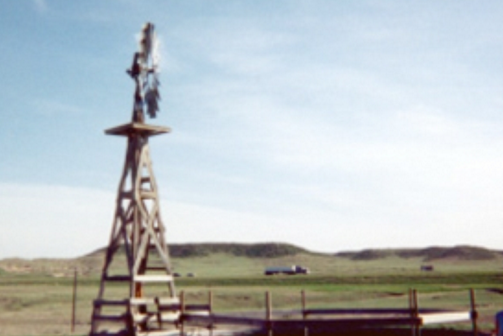Update Feb. 16, 2016: The Sierra Club and Public Justice have filed a federal lawsuit against three energy companies — New Dominion, Chesapeake Operating and Devon Energy Production Company — who are fracking in Oklahoma. It demands they “immediately and substantially” reduce their practice of “pumping wastewater into the ground,” an activity they say is linked to the spate of earthquakes in the region, including the 5.4 shaker last weekend. Scroll below the fold to read the full filing.
aNewDomain — From lead poisoning to earthquakes, the costs of hydraulic fracturing and the oil boom it’s made possible are too much to bear.
So says renowned activist Erin Brockovich, who is set to directly challenge Oklahoma’s disposal well practices and fracking-related water contamination issues at a Sierra Club meeting there later this month.
In the wake of last weekend’s 5.4 magnitude quake in northern Oklahoma, the state’s second largest shaker ever, Brockovich’s is just one of an increasing chorus of voices speaking out against fracking. And its future has never looked shakier.
Recent weeks have seen rowdy town hall meetings, public demonstrations and high-profile protests over fracking’s effect on the water supply. There are concerns over the massive volume of water fracking requires — some two billion gallons daily. And there are the fears about the possible contamination by the waste water pumped into the ground during the fracking process, water that contains benzene, toluene, formaldehyde, ethylene and other toxic chemicals.
“I’ve said before, I feel like Bill Paxton from that scene in ‘Twister’ where they say the tornado’s coming and he goes, ‘It’s already here,'” Brockovich told Bill Maher last week. “That’s exactly what’s happening with the water crisis. We are having a national water crisis in this country.”
The systemic lack of credibility and transparency in states like Oklahoma, Texas, Wyoming and Michigan is threatening public health and well being, not to to mention the conservation of national resources, she added.
But the stakes are high. Consider Oklahoma. It relies more on the petrochemical industry than any other state. Fracking is critical for energy production jobs and, as such, the economic health of the region. Will officials in that state and others be able to balance such economic issues with serious public health concerns and others involving the public trust? The outlook, so far, isn’t good.
How fracking may contaminate waste water
“We found a surprising number of places where companies are fracking directly into shallow freshwater aquifer,” Stanford professor Robert Jackson told reporters before a symposium of the American Association for the Advancement of Science yesterday in Washington, D.C. on Sunday.
“Where the chemistry suggests contamination, the problem usually lies with the integrity of the well, either the cementing used to isolate it from the surrounding rock and water or the steel casing that allows gas and oil to flow upwards,” he added.
Fracking wells are usually installed a mile or more below ground level, distant from underground drinking water sources, he said. But Stanford’s researchers discovered that as many as 2,600 wells in the U.S. have been fracked at 3,000 feet or shallower, some just hundreds of feet below the surface.
So what are the overall effects of such fracking? Unknown, he said. There’s no way of knowing the effects of fracking into groundwater resources because regulators as yet have not tried to systemize measuring fracking’s impact, he added.
That hasn’t stopped the EPA from coming out, last June, with a 1,000-page report concluding that fracking poses no danger to the drinking water. Scientists at the agency are finally backtracking from that statement, but whether that will accomplish anything at all remains to be seen.
Profits vs. public safety
One of the most frequent charges fracking opponents make against public officials in states like Oklahoma, Texas and Michigan is that they choose profits in favor of public safety. The same critics claim that even officials who work as environmental watchdogs might not be immune.
The EPA’s draft report in June, for instance, concluded that fracking posed no public drinking water dangers. At the time, environmentalists cried foul, saying that the actual data in the report contradicted that conclusion. But now the report is under fire from its own scientists.
Earlier this month, environmental scientists serving on the EPA’s 31-member Science Advisory Board (SAB) demanded that the report be edited to include three high-profile water contamination investigations in Dimock, PA, Parker County, TX, and Pavilion, WY, three cases that appear to show measurable links between drilling practices and public water contamination.
In all three communities, it’s worth noting, the companies responsible for the fracking denied their drilling and disposal practices had contaminated the drinking water — even though initial evidence suggested measurable contamination at failed wells and above-ground spills.
The EPA omitted those cases from its draft report, but reports show that it knew of them. In Parker County, TX, for instance, the EPA had issued an emergency order that the fracking company, Range Resources, provide drinking water to affected families.
But a year later, in 2012, the EPA succumbed to political pressure and brokered a deal with Range Resources, according to local residents and environmentalists. The terms: The EPA would close the investigation and recall the emergency order in exchange for the company to participate in the EPA’s national fracking study. The losers here were the residents, who were left with nothing to show for all this except polluted drinking water.
The petrochemical industry and politicians aligned with it maintain that there is nothing whatever to be worried about. Fracking “has been applied more than two million times with no documented cases of groundwater contamination,” said the American Petroleum Institute’s Erik Milito after the EPA released the draft report now under fire. “The science in support of EPA’s conclusion of no widespread, systemic impacts is credible and clear; any other conclusion would simply ignore the science.”
“It is inexplicable why the Science Advisory Board has encouraged EPA to incorporate their three discredited studies into the agency’s final water study,” Sen. James Inhofe (OK-R) said in a statement last month. “It is irresponsible and a purposeful interjection of bad science in order to distort the factual narrative.”
Yale University recently drew scientific links between chemicals used in fracking with problems with reproduction and developmental issues, including decreased sperm counts, prematurity and other medical problems. This particular Yale study, however, raises concerns about wastewater, which is even more toxic than the chemicals used in fracking.
It all boils down to issues of public trust. It’s one thing to not know enough about a situation to conclude that it’s dangerous. It’s quite another to ignore the dangers, all the while assuring citizens that everything is under control. That’s what an investigative report from the PublicHerald held, alleging that the EPA didn’t account for or address thousands of water quality complaints in Pennsylvania before releasing its draft report on fracking and water dangers.
Public disclosure in Oklahoma, Michigan and other states where fracking is believed to be contaminating ground water is bound to be under a microscope, too.
For its part, the SAB group will continue refining its final recommendations to the EPA before releasing them later this year. The panel’s recommendations are just recommendations — they aren’t binding, and the EPA doesn’t have to change its study to accommodate them. But the questions they raise about the public trust will continue to loom large.
For aNewDomain, I’m Jim Kelly.
Cover image: ScientificAmerican.com, All Rights Reserved.
Below is a copy of the federal suit The Sierra Club and Public Justice filed against three energy companies in Oklahoma on Feb. 16, 2016, companies who “engage in fracking.” The suit, filed against New Dominion, Chesapeake Operating and Devon Energy Production Company, demands the companies “immediately and substantially reduce the amounts of production waste they are injecting into the ground.” The suit comes on the heels of one of Oklahoma’s biggest ever quakes, a 5.1 temblor on Feb. 13, 2016.













